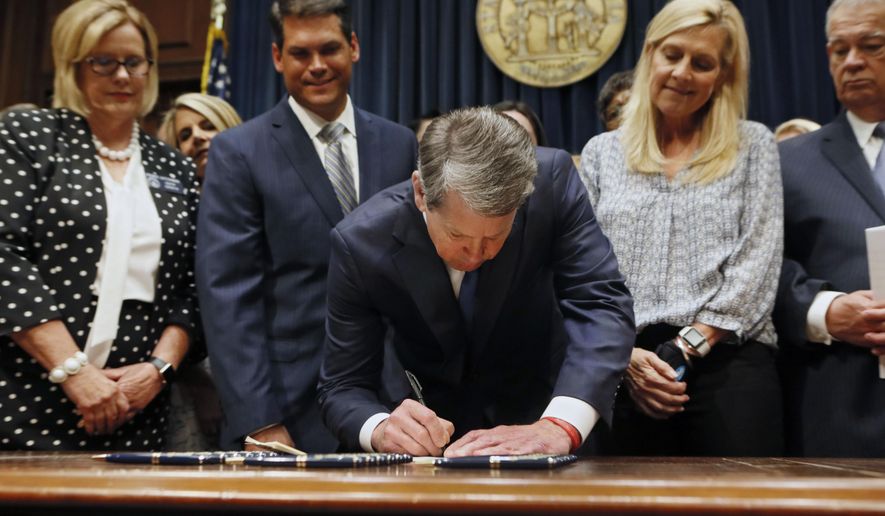Attorneys representing two Southern states with restrictive abortion laws faced federal judges on Monday in court cases that could reverse recent gains made by pro-life advocates.
In Georgia, lawyers representing the state argued before U.S. District Judge Steve Jones in Atlanta that Georgia’s ban on abortions after a fetal heartbeat can be detected should be allowed to take effect while a legal challenge is pending.
Fetal heartbeats can be detected as early as six weeks of pregnancy, before many people even know they’re pregnant.
Attorney Patrick Strawbridge argued that the ban doesn’t violate Supreme Court precedent because it allows abortions up to the point when a heartbeat is detected and, in some cases, after a heartbeat is detected.
The SisterSong Women of Color Reproductive Justice Collective filed a federal lawsuit calling the ban “an affront to the dignity and health of Georgians.”
The Georgia law, signed in May by Republican Gov. Brian Kemp, makes exceptions in the case of rape and incest, as long as the pregnant person files a police report first. It also allows for abortions when the life of the pregnant person is at risk or when a fetus is determined not to be viable because of a serious medical condition.
Additionally, it declares that an embryo or fetus is a “natural person” once cardiac activity can be detected, saying that is the point where “the full value of a child begins.” That would make the fetus a dependent minor for tax purposes and trigger child support obligations.
Talcott Camp, an attorney for the American Civil Liberties Union, argued that the Supreme Court has held that states must respect a woman’s right to choose to have an abortion at any point before viability and that Georgia’s law violates that by banning many pre-viability abortions.
Viability is defined as the point when the fetus can live outside the womb without artificial support, generally from 24 to 28 weeks of pregnancy.
“The main purpose of this law is to ban abortion,” Mr. Camp said.
The Georgia ban is set to take effect Jan. 1.
In Nashville, Tennessee, a federal trial began Monday over the state’s mandatory 48-hour waiting period before a woman can receive an abortion, a law enacted in 2015.
Alex Rieger, representing the state attorney general’s office, said in opening statements that Tennessee’s law “offers women a chance to make a different choice” and is similar to laws in other states that have been upheld by the courts.
Dr. Sarah Wallet, the former medical director of Planned Parenthood of Tennessee and North Mississippi, testified that the mandatory waiting period actually delays the abortion by up to a month.
Tennessee is 1 of 27 states that require some sort of mandatory waiting period, ranging from 18 to 72 hours.
Attorneys for five of the seven abortion clinics in Tennessee must prove that the mandatory waiting period imposes “an undue burden” on those who are seeking an abortion, the standard established with the 1992 Supreme Court decision in Planned Parenthood v. Casey.
“Since Tennessee’s law was enacted, more than 2,000 women have declined to obtain abortions after completing their initial informed consent visits,” attorneys for the clinics argue in court filings.
Attorneys for Tennessee argued in court filings that the law “helps to ensure that abortion decisions are made knowingly, competently, and voluntarily.”
The court challenges are emerging against the backdrop of a Supreme Court with a conservative majority, with both sides anticipating it would overturn Roe v. Wade, the 1973 decision that legalized abortion.
• This article is based in part on wire service reports.
• Christopher Vondracek can be reached at cvondracek@washingtontimes.com.




Please read our comment policy before commenting.